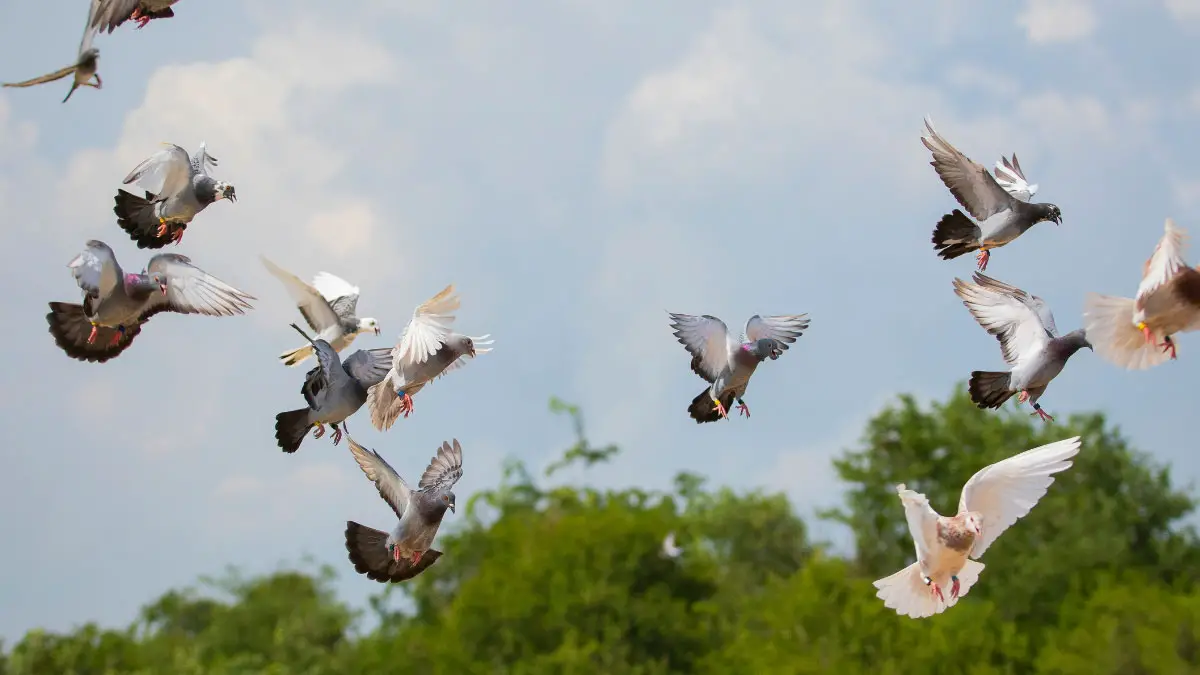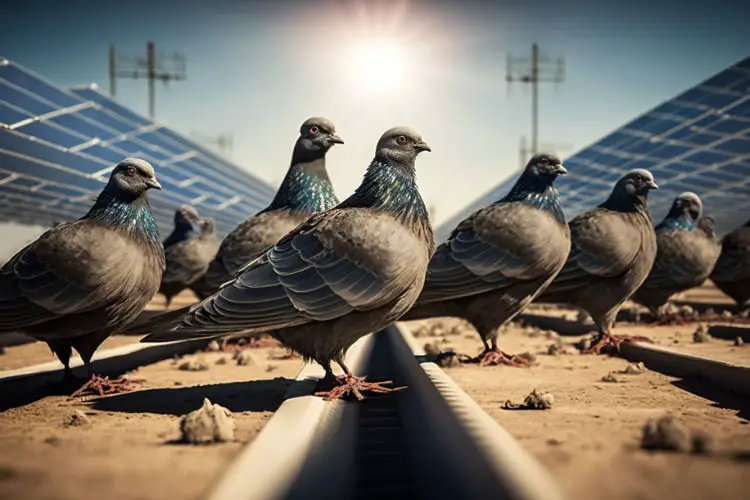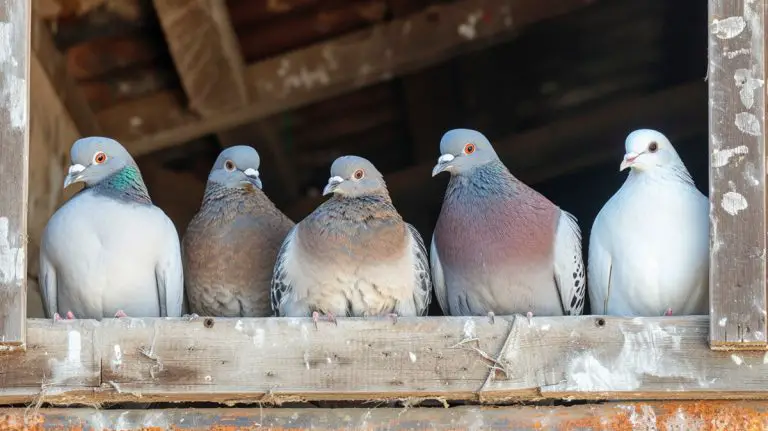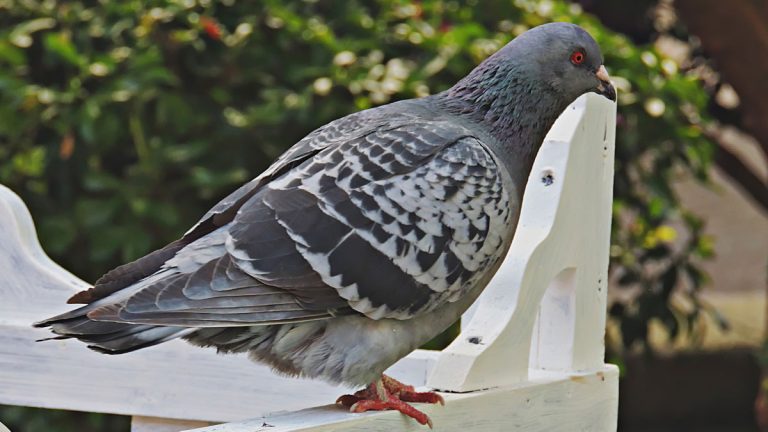The Role of Nutrition in the Performance of Racing Pigeons
Proper nutrition regulates the overall health performance of both humans and animals. Consequently, racing pigeons require strict regulation to maintain their overall performance.
So what’s the role of nutrition in racing pigeons? Sufficient nutrition can help in the body’s growth, strengthen the immune system and prevent disease. Moreover, excessive consumption can lead to health problems. Regulation in diet can not only influence their performance but also improve their health.
In this article, we will discuss the importance of nutrition for racing pigeons. We will also cover how to ensure proper nutrition for your flying friends. Read on to get the things precisely.
Key Nutritional Requirements For Racing Pigeons
Generally, the key nutrients required for pigeons are water, protein, energy, minerals, and vitamins. All these nutrients are highly required at a young age. As it is the time for growth and bodybuilding. Proper nutrient intake at this stage can lead them to a healthier life.
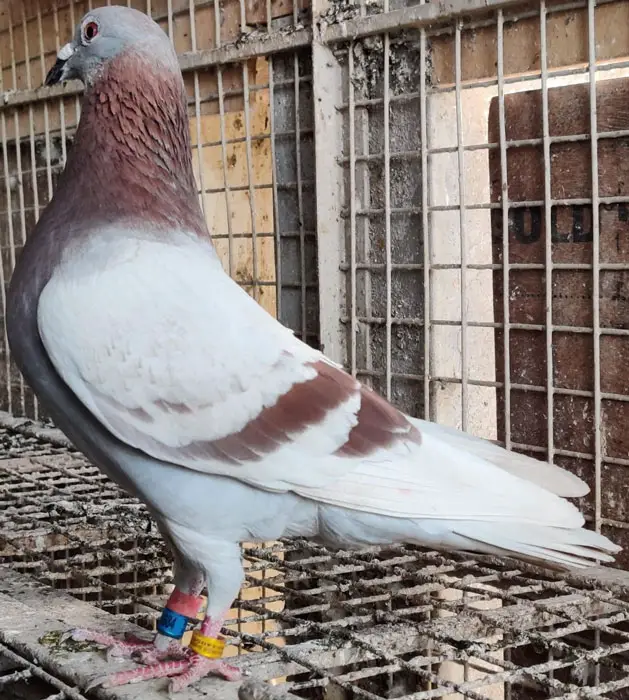
Also, at the time of breeding, these nutrients can help to enhance the ability of offspring. If we look at their food consumption, it is full of carbohydrates and fats. When it comes to pigeons, fat is the main source of energy. Also, carbohydrates store energy, which can be used during racing or any other physical need.
Though protein is not a primary source of energy in pigeons, still, for proper body growth, it should not be neglected. Also, tiny amounts of vitamins and minerals can help to strengthen the body in the long run.
Creating A Balanced Diet For Racing Pigeons
Well, pigeons contain gizzard to digest the food, and later it is absorbed in the intestine. Mainly their meal is composed of fats and carbohydrates as they are commonly seeds. Overall, it helps to give the body enough energy to fly, especially during the time of racing.
Remember that the pigeon must gain an overall 3,000kcal/kg of energy. Where 1gm of carbs give= 4 calories. 1gm of fat gives= 9 calories.
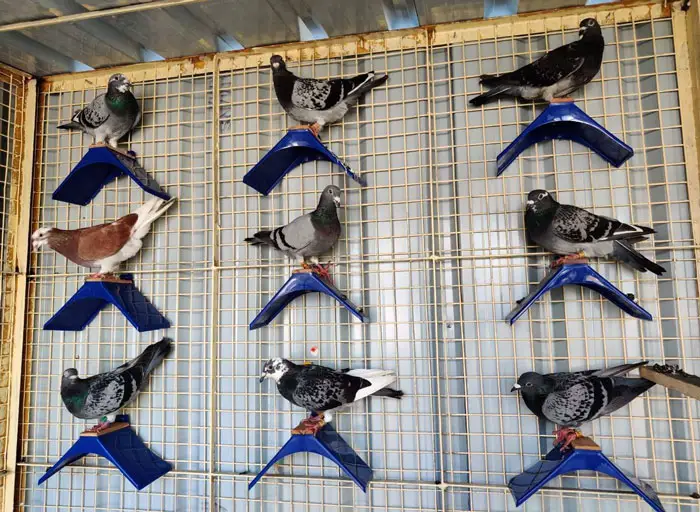
Below, a requirement for a balanced diet is provided.
| Nutrient | Amount |
|---|---|
| Protein | 13% |
| Fat | 5% |
| Carbohydrate | 70% |
| Fibre | 4% |
The mixture of feed generally includes peas, barley, wheat, corn, peanuts, seeds, maize, linseed, white milo, sunflower seeds and safflower seeds. Apart from that, you can also create a diet chart by yourself while considering the nutritional values.
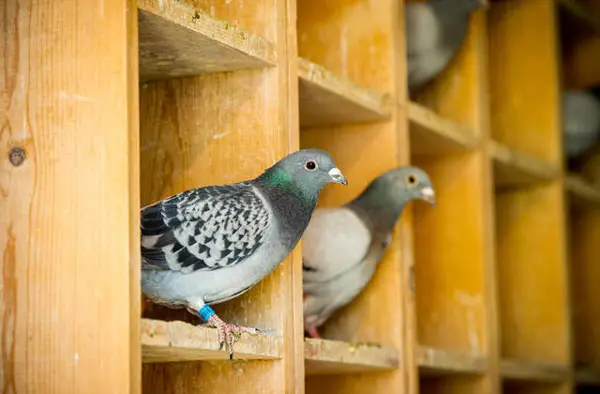
Below nutritional content of 100 g of each product is provided.
| Product | Carbohydrate (g) | Protein(g) | Fat (g) |
|---|---|---|---|
| Peas | 14 | 5 | 0.4 |
| Wheat | 68 | 15 | 1.9 |
| Barley | 73 | 12 | 2.3 |
| Corn | 21 | 3.4 | 1.5 |
| Safflower seeds | 9.7 | 4.6 | 11 |
| Sunflower seeds | 20 | 20.77 | 51.5 |
| Linseed | 28.9 | 19.8 | 41.6 |
| Oats | 68 | 13 | 6.5 |
| Maize | 18.7 | 3.27 | 1.35 |
| White milo | 66 | 20 | 20 |
You can follow the below pattern to create a diet for the pigeon.
- Peas 30-40%, maize or wheat 15%, and other additional foods.
- Barley 15% and others such as wheat, corn, and peanuts.
- 25% safflower, 25% corn, 15% hemp, 15% wheat, and raw peanuts.
Pigeons are required to maintain proper nutrition all around the year. During the racing period, adding high carbohydrate feed in the loft is a must. While, keep the protein and fat content to low. So that, they can easily digest the carbs and enough of them are available for utilizing during races.
Mainly seeds are high in fat and protein while corn, wheat, barley, and rice are high in carbs. For protein-rich feed, peas can be used as a main source. It also provides essential vitamins and minerals to maintain the growth and development of health.
Generally, you can also create a mixture of the above feeds while using different protein sources for a diet.
Some may like to add peanuts to the diet of the pigeon. It can be a treat but do not include it in an excess amount. As too much fat in the diet can backfire. Instead of providing energy the excess fat would rather get accumulated in the body. And make it tough for them to fly for a long distance followed by dieases.
Well, include seeds for enhancing the nutrient. Adding one type of seed in the meal can balance the overall nutrient. Also uding probiotics in the diet for at least once a week can boost the immune and digestive system of the pigeons. This helps in the absorption of food and results in good health.
No matter what feed you are adding in the diet, follow the balanced nutritional requirements as overfeeding can badly affect their health.
The Role Of Protein In Racing Pigeon Nutrition
Even though protein does not contribute much in providing energy during races, yet it helps to regulate bodily function. The main sources of energy are fat and carbs. When there is a lack of both nutrients, the protein can finally step up and provide energy.
The breakdown of protein is the last option when the body needs nutrients urgently. That’s why it hardly has any effect during races as other nutrients will be enough for providing energy.
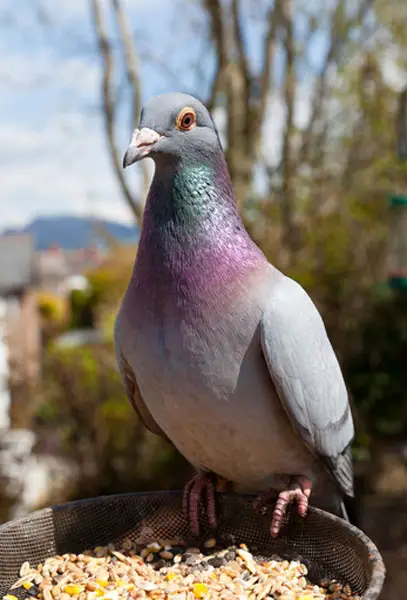
It is generally known as the “building block,” which not only repairs the tissue but also helps to create them.
It is composed of amino acids, which are essential for regulating metabolic reactions. Fulfilling the nutritional requirement of the pigeon during reproduction can offer good health to the offspring. Also, genes can contribute to better racing.
Moreover, providing the essential amino acids through the diet can meet the body requirements of pigeons.
At the same time, taking too much food or amino acids can result in the opposite. Their diet already contains less amount of protein. So, you just need to make sure to put the right protein-rich food in the feed. Wheat, barley, and peas can be good sources of this nutrient.
The Role Of Fat And Carbohydrates In Racing Pigeon Nutrition
During the racing period, especially when they are attempting for a long distance, they would need the energy to go on. And this energy is derived from fat and carbohydrates.
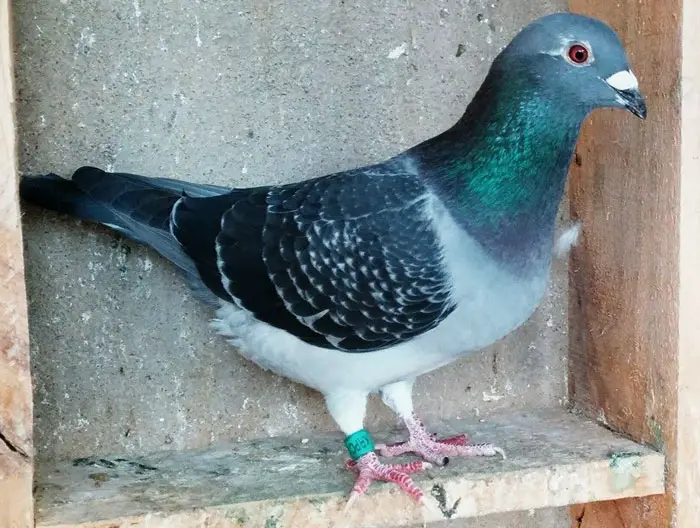
Carbohydrate
It is the energy provider component. It can be present as either glucose or glycogen. Well, glucose gives instant energy to the body. On the other hand, glycogen is the stored form that is utilized during the lack of energy.
Carbohydrates work effectively when the pigeon needs energy immediately. Most of the feed given to them is rich in carbs such as wheat, seeds, and barley.
On the other hand, excess consumption of it can lead to the formation of fat. Which is not good as the excess amount can lead to health problems.
Fat
Fat acts as the main source of energy in the pigeon. When researches have shown that it tends to be utilized more effectively in a pigeon in comparison to carbohydrates.
Even to some extent, carbohydrates can get stored in the body as fat due to metabolism, which is utilized in need. It is also known that fat gives more energy than carbs.
As a result, the breakdown of this nutrient influences the activity of the pigeon more rapidly, which is highly needed in time for racing. Moreover, there is also a limit on fat consumption.
Fat more than 2-5% should not be given to them as excess intake can increase the risk of cardiovascular disease. Additionally, the disease can highly affect their speed by making them weak.
Hydration And Racing Pigeon Performance
Hydration highly influences the output of the pigeon during racing. Well, the temperature and humidity affect their activity the most as it leads to rapid dehydration.
Even though you let your pigeon go in the race after hydrating them, on the way, they would get tired. And due to the weather, fluid loss can occur increasingly.
That’s why during races, baskets filled with water should be kept outside the house. So that they can rehydrate themselves immediately after reaching their destination.
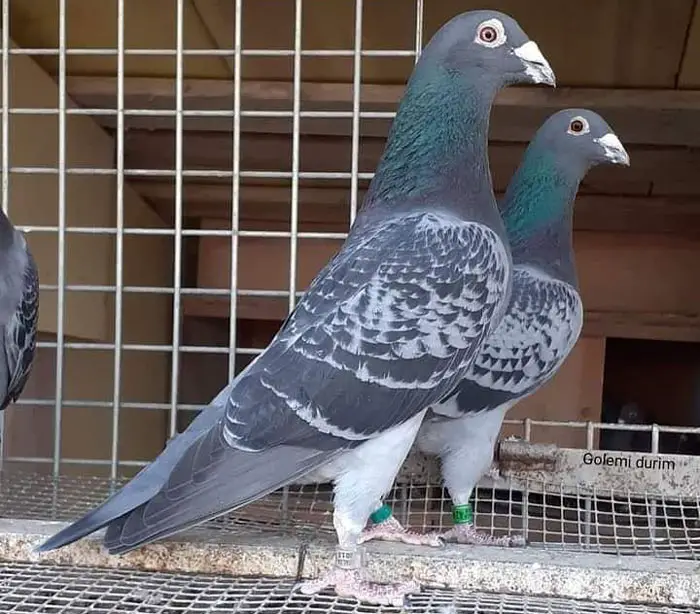
It is obvious that they would get tired in the long run and take a rest. At that time, having a water source can help them to rehydrate.
High temperature and low humidity can cause rapid dehydration in the pigeon. Moreover, it leads to the loss of both fluid and electrolytes.
Also, the heat produced in their own body should be cooled down. Dehydration can cause fatigue and weakness. Severe cases can cause hyperthermia. Overall, this can slow down the speed.
Moreover, the pigeons take a rest midway through the competition. Now, dehydration would make them take more recharge time.
The Importance Of Supplementation In Racing Pigeon Nutrition
Apart from the major nutrients, vitamins and minerals are also necessary for the pigeon. Also, there are different supplements found where the main purpose is to ensure good digestion and utilization of food. So, a healthy body can lead well.
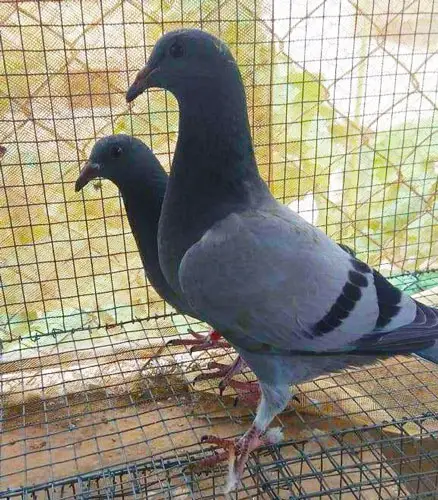
Vitamins
Generally, pigeons require vitamins A, B, E, and K mainly in their diet. All these vitamins regulate the system in the body. Vitamin k is required for healing the body. At the same time, B-complex is required for blood formation.
Moreover, they help every sector of the body to improve. Mostly green leafy vegetables are added to the diet of pigeons to increase vitamin intake.
Minerals
Minerals are lost the most when the pigeon suffers from dehydration. To improve the condition, adding salt and sugar to the water can be effective. Apart from that, Calcium is required for bone health. Contrarily, magnesium and zinc are required to initiate many mechanisms in the body.
Probiotic
Probiotics in the diet can help to improve the metabolism. Also, ensure proper digestion of food, improve bowel movement, and increase the immune system. Apart from that, it relieves stress by contributing to bodily systems. Ensure the proper utilization of feed in the diet.
The role of nutrition in the performance of racing pigeons is a critical aspect of pigeon racing. Providing the right balance of nutrients, vitamins, and minerals can significantly impact their overall health and racing abilities. If you want to delve deeper into the world of pigeon racing, our article on famous pigeon racers explores the achievements and strategies of renowned pigeon racers who have excelled in this sport. Additionally, you may also be interested in learning about the impact of technology on pigeon racing. Our article on the impact of technology on pigeon racing delves into the advancements that have revolutionized the sport.Bottom Line
Overall, The Role of Nutrition in the Performance of Racing Pigeons is inevitable. During the racing period, they require the most nutrients to function. However, maintaining a diet chart can help to sustain a healthy body for a long time.
This consistency in health can result in a great output at the time of racing. Moreover, maintaining a diet just before the race can hardly be of any help. That’s why you must introduce the diet beforehand and follow it. So that, the pigeon can give the best feedback in return.
